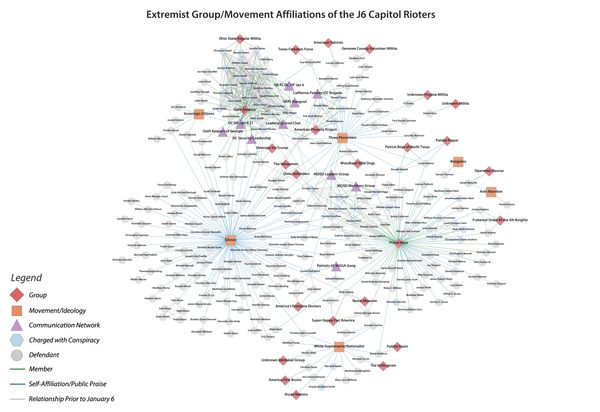On the one-year anniversary of Jan. 6, conservatives held more than two dozen “Justice for J6” vigils across the country, arguing that most of those arrested for storming the U.S. Capitol “were political neophytes” who hadn’t realized what they were doing was wrong. In February, the Republican Party described the insurrection as “legitimate political discourse” in censuring the two GOP members of Congress who joined the House select committee investigating the Jan. 6 events. And in early April, Donald Trump told the Washington Post that he had wanted to march to the Capitol himself, saying, “I would have gone there in a minute” if the Secret Service hadn’t prevented it.
All this is part of a growing effort to normalize the riot at the Capitol, and to cast its perpetrators as overwhelmingly “ordinary people” who got caught up in the momentum of something beyond their control. But last week came decisive evidence that this simply isn’t true: At least a third of those arrested in conjunction with Jan. 6 belong to a far-right network that is not just deeply interconnected but resilient and adaptable.
Last Thursday, Michael Jensen, a senior researcher at the University of Maryland’s National Consortium for the Study of Terrorism and Responses to Terrorism (START center), released preliminary findings on the ideological motivations and connections of about 30 percent of all Jan. 6 defendants. While his research is ongoing, Jensen has already found that at least 244 of the 816 people arrested to date were either members of “extremist” organizations or self-identified with them. In his widely-shared map of the network (embedded below), Jensen documented at least 700 relationships between the defendants and both well-known far-right groups as well as more diffuse movements, including white nationalists, anti-vaccination activists, militias, militant anti-abortion groups, QAnon adherents and more.

While the “ordinary people” narrative around Jan. 6 has become ubiquitous, Jensen says, “These aren’t ordinary relationships — or, at least, they shouldn’t be.”